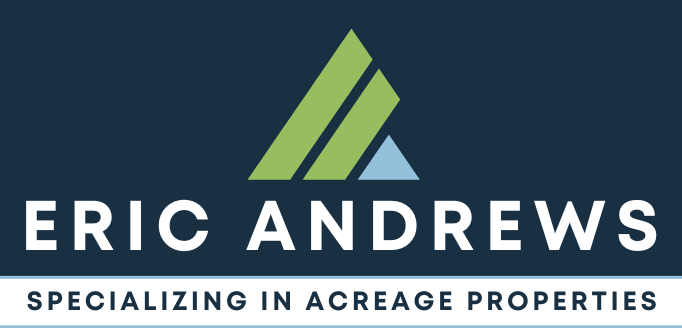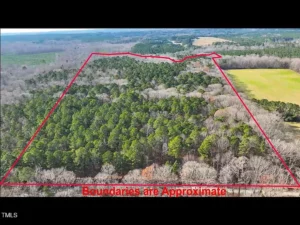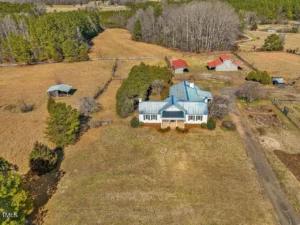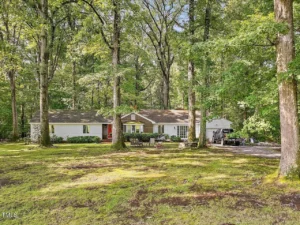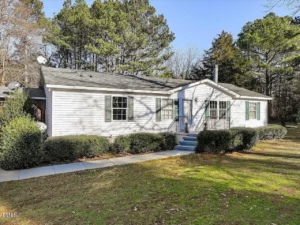Chatham County Real Estate Broker Eric Andrews has been involved in the planning of several subdivisions and worked with a wide variety of homeowners who use road maintenance agreements. There are a ton of issues with roads in subdivisions. While many roads are intended on becoming public roads which are maintained by North Carolina’s Department of Transportation, many roads end up remaining private. If North Carolina is not maintaining the road in your subdivision, it’s probably because it’s a private road. If your HOA is unable to get the roads up to par so that they become “public roads”, you’ll need a road maintenance agreement if you can’t get NC DOT to take them over.
Speaker 1: Okay. So we have a question from somebody on YouTube today.
Eric: Yeah. This is a guy out of Winston Salem who’s asking the difference between public versus private roads. And of course I told him I’m a land broker with experience, I’m not an attorney. I’m just answering these questions based on my experience, but I hope they were helpful.
So he says, Eric, I was just visiting your YouTube website and wondered if you’d be kind enough to answer a few questions from me. If a deed states on it, that the roads are public and that the subdivision will assume all maintenance until the state agrees to take them over, is the road public or private if the state is not maintaining the roads? That’s a good question.
So I told this person, they’re private until they’re taken over by the state, even though the survey or the deed says, otherwise, the state won’t take them over until a neighborhood is a certain percent occupied. It’s usually 80%. And then not until the roads have been inspected and accepted by the DOT.
And he said, “I’m correct in assuming most surveys have this type of wording, public versus private?” And I wrote back and I said, “There is no most anymore. They’re all different.” It’s all over the place. And then he wrote, “But doesn’t it mean the roads are public?” And this is, this is a crucial, crucial difference. I said, “It means that they are intended to be public. They may become public, but they aren’t public yet.” Even though it says public until they’re taken over, they’re not officially.
And he said, “Do you know of anyone that I could speak to at NC DOT about road designations?” And I don’t know a specific person or department, but when you call North Carolina, DOT you can get on their voicemail tree, and this is a very common concern.
So many of the public roads from around 13 years ago were never completed, because that’s when we had our first recession, I expect more of the same will happen again. Developers in some areas are required to put up a bond. In a lot of small planning areas your word is your bond. You’ve heard that expression before? Yes, I will make sure these roads are good. But if a developer goes out of business or they don’t have any money, financial bonds are more important.
And then he asked, “Who owns the subdivision roads?” I said, “That can get very complicated, depends. Normally the parcel owner owns to the middle of the road. So if it’s a private road or a public road, believe it or not, you own to the middle of the road.”
He said, “My subdivision is having a hard time agreeing, but I find it hard to believe the public designation has any bearing if the state is not maintaining them.” And I wrote back, “You have good instincts.” Because, he’s right. This happens a lot. A developer gets approval on a subdivision and gets approval based on public roads. The state finds some kind of shortcoming in the quality of the road like the asphalts not deep enough, the culverts are too small, or bent. A lot of times people put mailboxes or fencing into the right of way. So the road does not get approved until the developer is gone. The road doesn’t get approved and the developer’s already gone and doesn’t have any money. So it’s up to the neighborhood then to improve the roads or create a road maintenance agreement because they’re private roads.
So good question by one of our viewers.
